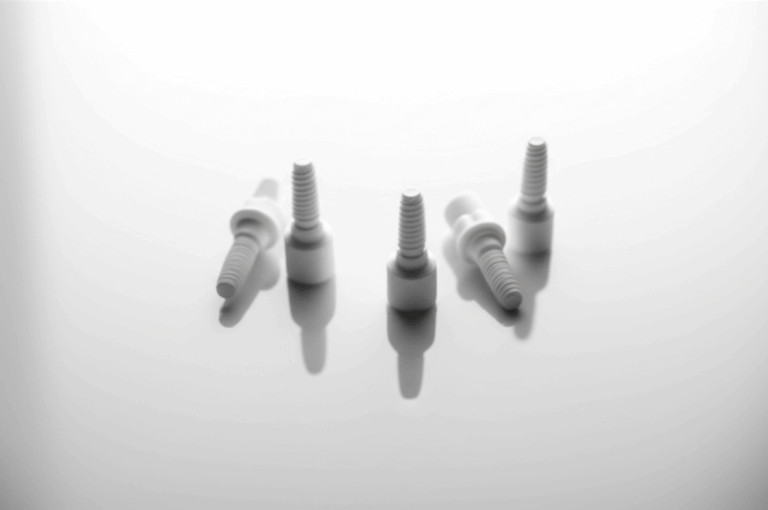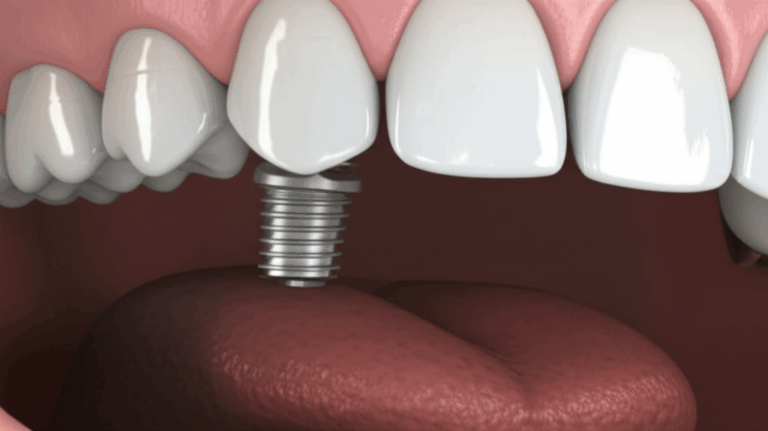
What Is the Best Age for Dental Implants? My Full Experience & Practical Guide
Table of Contents
The Truth: There’s No Single “Best Age”
Through all my years working around dentists and patients, I’ve talked to so many people about dental implants—from worried parents of teens to cheerful seniors in their eighties. If you’re reading this, you might think there’s a perfect age—some number that means you can get dental implants easily. Here’s what I found: there really isn’t a magic number.
This might sound odd. Most medical stuff has age rules, right? But dental implants work a bit differently. The important thing isn’t really how old you are. It’s about how healthy your jawbone and gums are, and how you are overall.
For example, I’ve met 85-year-olds with strong bones and gums, just like someone much younger. And I’ve seen younger adults who couldn’t get implants yet because their jaws were still growing.
So here’s the bottom line: Dental implants are about your mouth being ready, not how many birthdays you’ve had.
Dental Implants for Younger Patients (Under 18-25)
Why Age Matters for Youth
When I first learned about dental implants, I thought age wouldn’t matter much for younger people. But I was wrong. It changed my mind when I worked with a teenager who lost a front tooth in a bike accident. The family wanted a strong fix right away, but after looking at his X-rays, we saw his jaw was still growing.
What I learned: in teens and young adults, the jaw and face are still changing. Putting in an implant too early is risky, because implants don’t move as the jaw grows. What can happen? The implant may end up too low or in the wrong spot, which doesn’t look good or work well. It’s like putting a post in the ground before the earth is firm—you might find it’s in the wrong place later.
When Can Adolescents Get Implants?
From what I’ve seen, it’s usually safe to get implants after their face is done growing. For girls, that’s about 16-18 years old; for boys, usually 18-21. But some are different. That’s why good dentists check X-rays of your hand, wrist, or jaw to see if you’ve finished growing.
If you’re not done growing, I often suggest temporary fixes—like space fillers or simple dentures—so younger people don’t feel embarrassed while they wait. This waiting time can be tough, but moving too fast can cause big problems later.
Sometimes, teens or their parents really want to get it done now, but I always say waiting is best. When your jaw is ready, implants can last a lifetime.
Considerations: Emotional Impact and Alternatives
Missing a tooth when you’re young isn’t just about eating—it really hurts your confidence. I remember a teenage girl who stopped smiling after losing a tooth. For patients like this, I tell families to look at the whole picture. Temporary solutions today, like custom partial dentures from a digital dental lab, can look really natural.
There are also bridges. These have some good and bad points, but for younger patients, they help until the time for implants is right.
Dental Implants for Adults (25-65)
The “Prime” Age Range
If you’re in your late twenties to mid-sixties, you’re in what I call the “easy time” for dental implants. Most in this group have jaws that aren’t changing much anymore and are generally healthier than older folks.
I’ve seen lots of patients in this age group get great results, whether they lost teeth from an accident, tooth decay, or gum problems. Success rates? Very high—usually about 96-98% for healthy people who don’t smoke.
Key Factors for Adult Candidacy
But just being an adult isn’t enough. Other things matter a lot, like:
- Bone strength and size: If your jawbone is too thin or has shrunk after tooth loss, sometimes we need to add extra bone before the implant.
- Health and mouth care: Stable diabetes, no gum disease, and brushing every day are very important. I always ask, “Will you keep your mouth clean after the surgery?”
- Smoking: People who smoke have a higher risk of problems because smoking slows down healing. If you smoke and want implants, quitting is best for your mouth and your body.
One good thing about this age group is that things are usually simple. If you need new crowns and bridges or have one missing tooth, implants are a great, strong fix.
Dental Implants for Seniors (65+)
Age Is Just a Number
People think you can be “too old” for dental implants, but it’s not true. I’ve met strong seventy-, eighty-, even ninety-year-olds who wanted to toss out their loose dentures and eat better again.
Once again: how old you are isn’t nearly as important as how healthy you are and how you heal. A lot of today’s seniors are still very strong and have a lot of years left.
Some seniors who came in thinking they were “too old” left with strong new teeth and more confidence than they’ve had in a while. Seeing them happy made my day every time.
Specific Considerations for Older Adults
Here are some things to keep in mind if you’re older:
- Health Problems: Diabetes, weak bones, heart problems, and other medical issues aren’t always a “no.” What matters is if these are under control and how they may affect your healing.
- Medicine Use: Some medicines—like “blood thinners” or drugs for bone loss—can change your risks. Your doctor and dentist can check if anything needs to change before surgery.
- Bone Loss: Many older people have some bone loss. Don’t panic; adding bone is normal these days. It may mean more time before you get your teeth, but it works well.
- Healing Time: You may heal slower as you age, but implant success stays high—if you take care and listen to your dentist.
- Using Your Hands: Some people have arthritis or trouble using their hands to clean around the implants. Special brushes or help from someone else really helps.
Benefits for Seniors
Best of all? Implants do more than help you chew. They help you speak clearly, let you eat more foods, and help you feel better about yourself. Many say they feel younger and enjoy time with friends more. My advice: don’t let your age stop you.
Beyond Age: Critical Factors for Dental Implant Success at Any Stage
After years of seeing people young and old, I noticed something. The happiest patients with implants had the same things in common—and it’s not their age.
Bone Quality and Quantity
If your jawbone is too small or soft, your dentist may need to add more bone first. It’s like planting a tree—you need strong roots for it to grow. Whether you’re 28 or 88, your bone needs to heal around the implant well.
General Health & Medical History
Having problems like diabetes, heart disease, or weak bones isn’t always a “no-go.” What matters is if they’re under control. Tell your dentist every medicine you’re taking—some bone medicines need special care.
If you smoke, it makes healing a lot harder. I’ve seen more problems with smokers than anyone else. If you’re thinking of quitting, do it! It gives your implant a much better chance.
Oral Health & Hygiene
Red, swollen gums or gum disease can cause implants to fail. Keeping your mouth clean is a must. Some of my happiest patients after implants were people who brushed and flossed very well every day.
If you have trouble cleaning, today there are easy-to-use gadgets—and even phone apps—to remind you. A clean mouth makes implants last a long time.
Lifestyle Factors
Do you grind your teeth or drink a lot? These habits can hurt healing and your new teeth, so be honest at your visit.
Expertise of Your Dental Professional
Finally, the dentist or surgeon you choose matters a lot. Good ones use special tools and know what to look for to avoid surprises. Don’t be shy—ask about their past work and success stories.
The Consultation Process: Your Path to Candidacy
The day you go to talk to a dentist about implants, it can feel stressful. I’ve done it—not as a dentist, but as a patient with a tooth injury.
Here’s what will likely happen:
I always say, getting dental implants is a “team job”—you and your dentist working together. Checkups, honest talks, and knowing what’s going on are keys to good results.
Frequently Asked Questions (FAQs)
Can I be too old for dental implants?
From what I’ve seen, no—if you’re healthy, there’s no age where it’s “too late.” I’ve seen people well into their nineties get new teeth and do well. What matters much more is your health and how you heal.
Do implants last longer in younger patients?
Not really. Implants last if they’re put in right and you keep your mouth clean—age isn’t the main thing. Taking care of them and going to the dentist matters more.
What if I don’t have enough bone?
You’re not out of luck. Adding bone is normal and helps lots of people get their implants fixed properly. You might need to wait a bit longer as things heal, but it’s worth it.
Are there other options for people of different ages?
Yes. Young people who aren’t ready can use temporary dentures or bridges. Older folks who don’t want surgery may like easy-to-use dentures, which can be made in a removable denture lab.
How does my health affect implant success?
Good question. Problems like uncontrolled diabetes or low immune system can make healing harder. Teaming up with your doctor and dentist gives you the best shot at a smooth recovery.
Conclusion: Consult a Specialist for Personalized Advice
If I’ve learned anything from all these dental stories, it’s that your age is just one small part of the picture. Whether you’re thinking about dental implants for yourself or a loved one, don’t get stuck on the numbers.
Here’s my best advice: see a dental implant expert you trust. Ask all your questions. Share your health history. Get a plan that fits you. The right time for dental implants is when your mouth—and your life—are good for it.
Let your dental team guide you, just like they helped me and so many others. With the right help, dental implants can change your life at any age.
For more info on related teeth options, you can check out:
- Dental implant for a simple overview of dental implants
- Removable denture lab for non-implant choices
Thanks for letting me share my story and what I’ve learned. If you’re ready for the next step, book a visit with a professional. Good luck—and remember, your best smile is always worth it.








